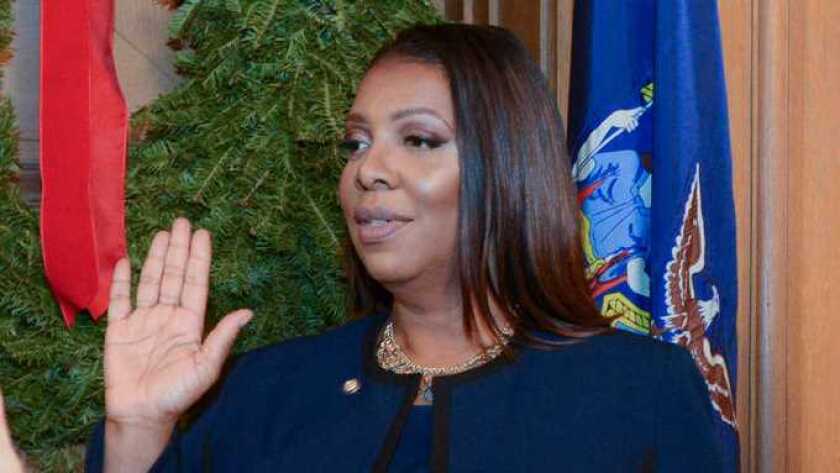And three companies — not telcos, but the survey companies — have admitted their offences, and paid fines.
Letitia James (pictured), the attorney general of the state of New York, has published the signed agreements by the three companies, but has not publicly identified the broadband operators that were paying them.
However the US$4.2 million to pay for the campaign came from a telecoms industry organisation called Broadband for America, says James’s office.
The three companies that have admitted being part of the conspiracy for Broadband for America have agreed penalties that total $4.4 million.
One of the three advocacy companies, Fluent, was responsible for approximately 4.8 million fraudulent comments, says James’s office. Another, Opt-Intelligence was responsible for more than 250,000 fraudulent comments. React2Media was responsible for approximately 329,000 comments in the net neutrality proceeding.
James’s office says that “most of these comments were submitted by a single person — a 19-year old college student using automated software”.
Her office says that “nearly 18 million of the more than 22 million comments the FCC received in its 2017 proceeding to repeal net neutrality rules were fake”. Net neutrality ended in Aplril 2018.
Since then Broadband for America — the industry organisation that paid for the campaign — has shifted gear. Its home page now says: “We fully support net neutrality”.
It adds: “The broadband industry is 100% committed to an open internet”, and says it opposes blocking, throttling and discrimination.
Broadband for America says its members “include AT&T, CenturyLink, Charter, CTIA – The Wireless Association, Comcast, Cox, NCTA – The Internet & Television Association, Telecommunications Industry Association (TIA), and USTelecom – The Broadband Association”.
James does not name them but refers only to “the nation’s largest broadband companies” as paying for the fraud, which was designed to hasten the end of net neutrality by Donald Trump’s chairman of the Federal Communications Commission (FCC), Ajit Pai.
Under the new Joe Biden presidency, the acting chair of the FCC is now Jessica Rosenworcel, a long-term advocate of net neutrality.
Rosenworcel said: “The public record should be a place for honest dialogue, but today’s report demonstrates how the record informing the FCC’s net neutrality repeal was flooded with fraud. This was troubling at the time because even then the widespread problems with the record were apparent.”
James’s office says that the operators “funded a secret campaign to generate millions of comments to the FCC. Many of these comments provided ‘cover’ for the FCC’s repeal of net neutrality rules.”
James said: “Americans’ voices are being drowned out by masses of fake comments and messages being submitted to the government to sway decision-making. Instead of actually looking for real responses from the American people, marketing companies are luring vulnerable individuals to their websites with freebies, co-opting their identities, and fabricating responses that giant corporations are then using to influence the polices and laws that govern our lives.”
She says this was “disguising an orchestrated, paid campaign as a grassroots effort, to create a false appearance of genuine, unpaid public support”, a process “often referred to as astroturfing”.
The three companies that have signed statements admitting their part in the astroturfing campaign were commercial lead generators that used prizes such as gift cards and sweepstake entries “to lure consumers to their websites and join the campaign”, says James’s office.
“However, nearly every lead generator that was hired to enrol consumers in the campaign, instead, simply fabricated consumers’ responses. As a result, more than 8.5 million fake comments that impersonated real people were submitted to the FCC, and more than half a million fake letters were sent to Congress.”






